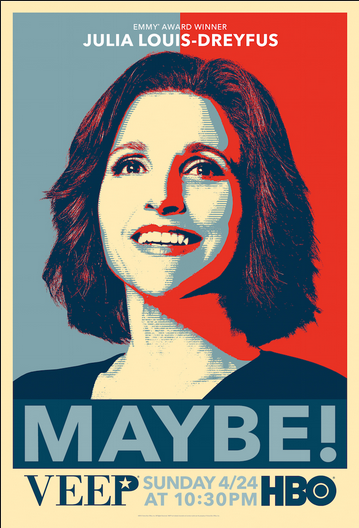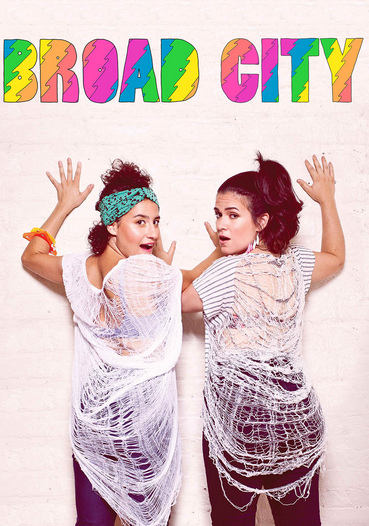Written under the supervision of Lisette Allen, M.A., and submitted on 4 January 2010, this essay was part of my total coursework at the Department of Anglophone Literatures and Cultures at Charles University’s Faculty of Arts. The essay is published with the kind permission of the faculty.
Sexuality in Truman Capote’s Breakfast at Tiffany’s
By the time of its release, Truman Capote’s Breakfast at Tiffany’s received both positive and negative reviews, none of which, though, addressed probably one of the most important aspects of the book – its homosexual content. Not only reviewers, though, were possibly blindfolded by the obvious heterosexuality of the main character, Holly Golightly, but along with them also most of the scholars, academics and regular readers. In this essay, we shall uncover those subtle hints of the homosexuality of a few main characters, and also focus on the views and attitude of Holly towards queer minority.
First and foremost, however, we have to focus on the most obvious question – why did the gay content elude so many? There are several reasons for this fact. To begin with, we have to realize that in the forefront stands the distinctly heterosexual character of Holly Golightly – a character which is so interesting that she draws the reader’s attention to herself in every scene she appears in. Secondly, the author gives only very slight hints about the sexual orientation of his queer characters. There is never more than one sentence or two in which he would suggest anything, and even when he does, it has mostly the form of a mild and coded message that only few have ability to intercept. Also, since all of the gay characters are adult, there is no teenage drama of realization and reconciliation of their orientation – with one single exception they feel satisfied with themselves and have no intention to change. In addition to all of the above, we also have to take into account a certain unpredictability of the characters – for example, see the marital development of Rusty Trawler.
Among the few people who were not blind to the queer content belongs Tison Pugh. In his article for “The Explicator” (Pugh), he reveals what others continuously missed for whole decades. According to him, half of the main characters are gay – namely the narrator, bartender Joe Bell, millionaire Rusty Trawler, and the new tenant who moves in Holly’s apartment after her departure – Quaintance Smith.
Following the chronological order, the first character we shall be concerned with will be the narrator. According to Pugh, the very first indicator of his homosexuality can be found in Holly’s definition of a gay man: “If a man doesn’t like baseball, then he must like horses, and if he doesn’t like either of them, well, I’m in trouble anyway: he don’t like girls” (Capote, 38-9). Not only does the narrator, who, throughout the whole book, remains nameless, not know anything about either of these topics, he also do not like them which is to be seen in the following quote from the scene of a party that takes place in Holly’s apartment: “I was left abandoned by the bookshelves: of the books there, more than half were about horses, the rest baseball. Pretending an interest in Horseflesh and How to Tell It gave me sufficiently private opportunity for seizing Holly’s friends” (Capote, 36). His disregard for “typically heterosexual” interests therefore essentially signifies his homosexuality. This hypothesis is only confirmed later in the book, when the narrator goes horse-riding with Holly and consequently almost loses his life when the steed gets alarmed and runs away with him. There are also few other hints that the narrator might be gay. For instance, when Holly tells him that she will under no circumstances testify against Sally Tomato, she says: “Well, I may be rotten to the core, Maude, but: testify against a friend I will not” (Capote, 93). Pugh writes that, according to “Dictionary of Slang and Unconventional English,” “Maude” signifies either a male prostitute or a male homosexual. Additionally, when the narrator comes, by the end of the book, from Holly’s apartment to Joe Bell’s, he makes the following remark: “Never mind why, but once I walked from New Orleans to Nancy’s Landing, Mississippi, just under five hundred miles. It was a light-hearted lark compared to the journey to Joe Bell’s bar” (Capote, 95-6). Though Pugh is convinced that the beginning – “never mind why” – appears as a subtle attempt to direct attention away from this confession, some readers might on the contrary argue that it is exactly what draws their eyes and focus towards it. Geographically speaking, Nancy’s Landing does not exist. This place was only created in Capote’s mind in order to allegorically express what he meant – the narrator’s coming-out. According to “A Dictionary of the Underworld”, as Pugh claims, the word “Nancy” refers either to the posterior or to “an effeminate man, especially passive homosexual”. Although the milage might be misleading, Capote certainly used it only to emphasize the difficulty of coming-out.
A very good friend of the narrator’s, Joe Bell, the bartender from the hangout the main characters regularly frequent, is also gay. However, same as in the case of the narrator, the evidence of his sexual orientation is very subtle and easy to overlook. Capote suggests his homosexuality through the list of his interests which are stereotypically those of gay men. Joe Bell passively enjoys ice-hockey – a sport played by young and muscular men – and is also very fond of a radio program called “Our Gal Sunday” – a soap-opera he has been listening to for fifteen years. In addition to that, he is a fan of Gilbert & Sullivan. The narrator mentions that: “[Joe Bell] claims to be related to one or the other, I can’t remember which” (Capote, 10). W. S. Gilbert was a librettist and Arthur Sullivan a composer who together collaborated on fourteen operas (BBC Homepage). According to Pugh, Sullivan is, because of various coded references and notes in his diary, rumored to be gay. Saying that, the author would give us a choice either to believe that Bell is related to Sullivan – and therefore gay – or to be convinced about the opposite, in which case, however, we would have to deny all of the secondary evidence. In order to ensure that the readers who discover these subtle hints understand them correctly, Capote emphasizes the feminine side of Joe Bell, writing that: “[In the bar] there is always a large bowl of fresh flowers that Joe Bell himself arranges with matronly care” (Capote, 11).
Also, Joe Bell’s workplace as such is rather suggestive, considering that it is, in fact, a gay bar. Again, there are only few subtle suggestions about the nature of this place. Firstly, the bar is described as boasting “neither neon nor television” (Capote, 5). According to Pugh, during the 1950’s, gay bars did not advertise themselves in any striking way in order not to attract too much attention or be provocative. Usually, their patrons had to learn about them through the grapevine. Additionally, the bar is described as having “two old mirrors [that] reflect the weather from the streets” (Capote, 5). These one-side mirrors, which allow the customers to see the street but not vice versa, have been very popular in many gay bars for they ensure the privacy of their patrons, and are used even nowadays. Furthermore, although there are never too many customers in this bar during the time the narrator and Holly are in, in the very beginning, just as the narrator is about to leave after a brief conversation with Joe Bell, two men are described going in together (Capote, 14) – as a solitary piece of information it would be entirely irrelevant but given to the context, it might be suggestive as well.
Yet another gay character appears by the very end of the book and is only briefly mentioned. It is a man, a new tenant who acquires the free apartment that Holly left behind after her departure, and who “entertained as many gentlemen callers of a noisy nature as Holly ever had” (Capote, 99). His name is Quaintance Smith which, as Pugh believes, is a reference to George Quaintance, a 1940’s to 1950’s painter, whose art hovered on the verge of soft-core gay pornography (The Quaintance Collection).
The sexuality of the following character is rather perplexing. Rusty Trawler is a millionaire celebrity and Holly’s customer. He was orphaned as a child and his godfather became his custodian. However, shortly after that, the godfather was “arrested on charges of sodomy” (Capote, 36). Because of the fact that he was betrayed and molested by the person he trusted the most, Rusty caught himself in the circle of mistrust and self-denial. Essentially, he is gay only he does not admit it. Once, when Holly approached him and tried to convince him to “settle down and play house with a nice fatherly truck driver“ (Capote, 42), he almost stabbed her to death with a butter knife. His denial led so far that he keeps plunging himself into relationships with women, was divorced three times, and although he eventually married – to Holly’s great disapproval – Mag Wildwood, we do not get to see whether their marriage survives or falls apart.
Holly Golightly herself is far from being a lesbian. She is very open-minded, has a lot of homosexual friends, and shares some ideas that would probably be too progressive to be accepted by the society at that time if Capote had not written them cryptically. Although it is clear from the text that her relationships with both the narrator and Joe Bell are solely platonic, many readers omitted the queer cause of it. For instance, in the beginning of the book, Holly climbs through the window into the narrator’s room, thus escaping her slightly violent alcoholic customer. After a brief conversation, Holly decides to stay for a while with the narrator – and in his own bed – simply justifying herself as following: “Do you mind? I only want to rest a moment. So let’s don’t say another word. Go to sleep” (Capote, 29) Even though they spend some time lying beside each other, the narrator does not attempt intercourse – presumably not because he would value their newly established friendship so much, but simply because he is gay. Also, Holly’s progressive opinions about gay marriage remain live even (or especially) in contemporary society: “A person ought to be able to marry men or women or – listen, if you came to me and said you wanted to hitch up with Man o’ War, I’d respect your feeling. No, I’m serious. Love should be allowed. I’m all for it” (Capote, 76) Concerning this remark, Pugh finds it a bit ironic, suggesting that since Holly considers all men who do not like horses or horse-riding gay, reading “Man o’ War” would make them straight. In addition to that, we cannot forget to mention Holly’s own liberal views on homosexuality in regard to herself. Once, in order to “keep Mag Wildwood from learning that she has slept with Mag’s lover, José, Holly breezily pretends she is a lesbian, partly to deceive Mag and partly for the humor of the deception” (Garson, 83)
The success of this novella soon led to making a film, a musical (which was such a failure it was closed after only four shows) and recently also a theatre play (CD Reviews, Colin Ingram Ltd.) Although the movie and the play were both very successful (Feinstein), one curious thing is that the homosexual characters are almost completely absent. Especially in the movie (Breakfast at Tiffany’s), this discrepancy is highly visible. Neither Joe Bell, nor Quaintance Smith, appears here. Rusty Trawler is merely an obnoxious caricature but, above all, the narrator is made straight and eventually falls in love and becomes a couple with Holly herself. We can only guess why the writers of this film decided not to keep the homosexual content in the movie. Maybe they simply overlooked it – as so many others – or maybe the society was not ready for it at the time. However, if we are to believe the latter, we should also ask why the same scenario is then used in the recent play. Contemporary society is, after all, considered fairly liberal and open to homosexuality. Perhaps the creators of the play did not do proper research; perhaps they were inspired more by the film than the novella; or they might have only been afraid that if it became “just another gay play” they would not profit that much.
Truman Capote’s “Breakfast at Tiffany’s” is by many considered to be his magnum opus. The success of this multilayered novella remains even today. Therefore, it is even more striking that only so few a people were able to uncover one of the most important layers of the book that puts the whole story under completely different light – homosexuality. Truth is, though, that the author did his best concealing all of the queer hints and making most of the gay references rather cryptic. Nevertheless, the book is so entertaining and the ideas it contains so progressive that it shall remain vivid at least for another fifty years.
Bibliography:
“Breakfast at Tiffany’s.” CD Reviews. 11 June 2002. 11 December 2009 < http://www.musical-theatre.net/html/cdreviews/breakfast.html>
“Breakfast at Tiffany’s.” Colin Ingram Ltd. 11 December 2009. 11 December 2009 <http://www.breakfastattiffanys.co.uk/home/>
Breakfast at Tiffany’s. Dir. Blake Edwards. Prod. Jurow-Shepherd. Perf. Audrey Hepburn. Paramount, 1961.
Capote, Truman. Breakfast at Tiffany’s. New York: Penguin, 1961.
Feinstein, Herbert. “Movie Review: Breakfast at Tiffany’s”. Film Quarterly Spring 1962, Vol. 15, No. 3: 65-68 accessed by <www.jstor.org>
Garson, Helen S. Truman Capote. USA: Frederick Ungar Publishing, 1980.
The Comic Operas of Gilbert and Sullivan. BBC Homepage. 11 December 2009. 11 December 2009 < http://www.bbc.co.uk/dna/h2g2/A435737>
The Quaintance Collection. 2 January 2009. 28 December 2009. <http://www.georgequaintance.com/>
Pugh, Tison. “Capote’s Breakfast at Tiffany’s“. The Explicator Fall 2002, Vol. 61” 51-53 accessed by <http://lion.chadwyck.co.uk.onelog3.ruk.cuni.cz/>





Napsat komentář